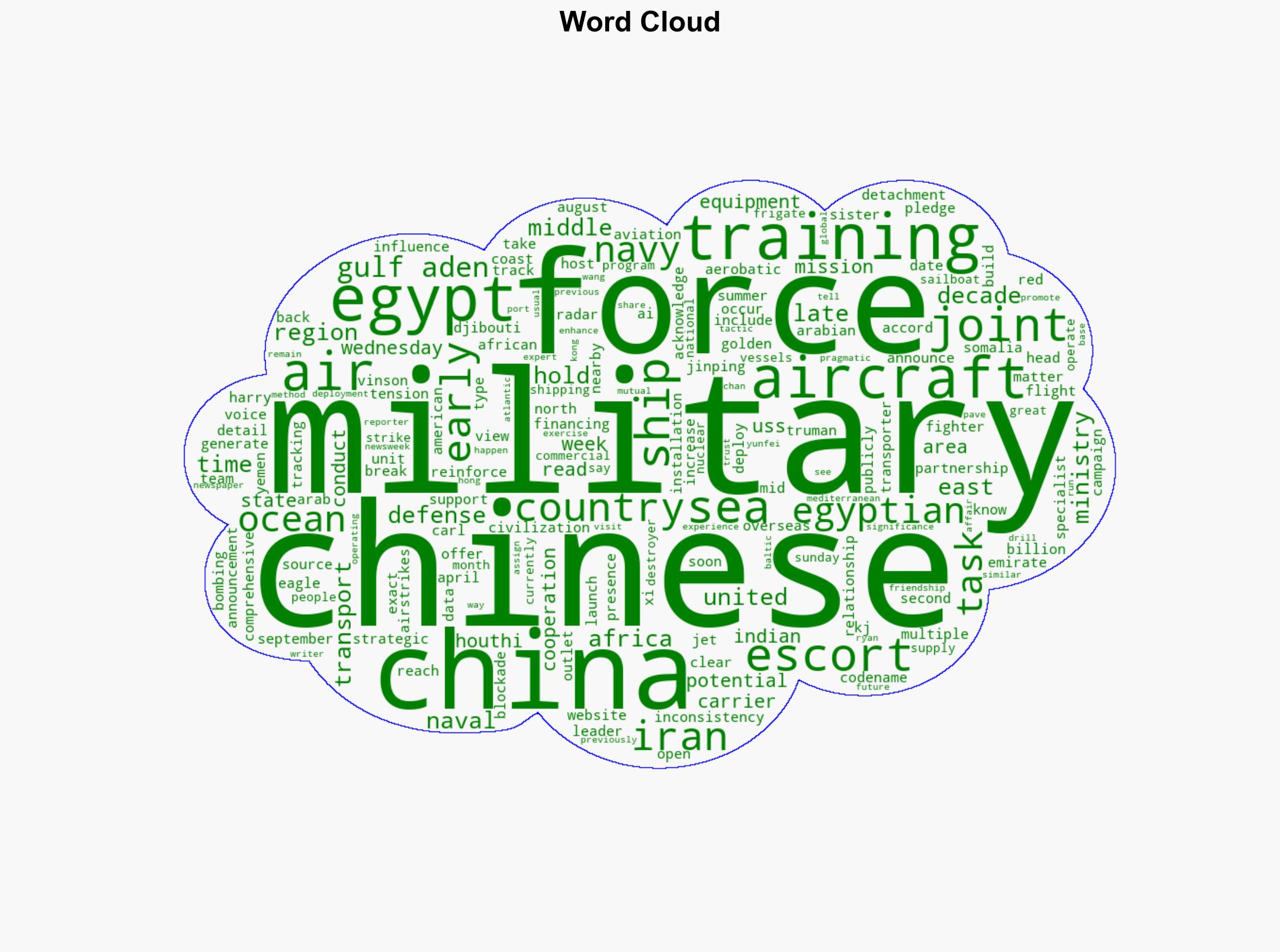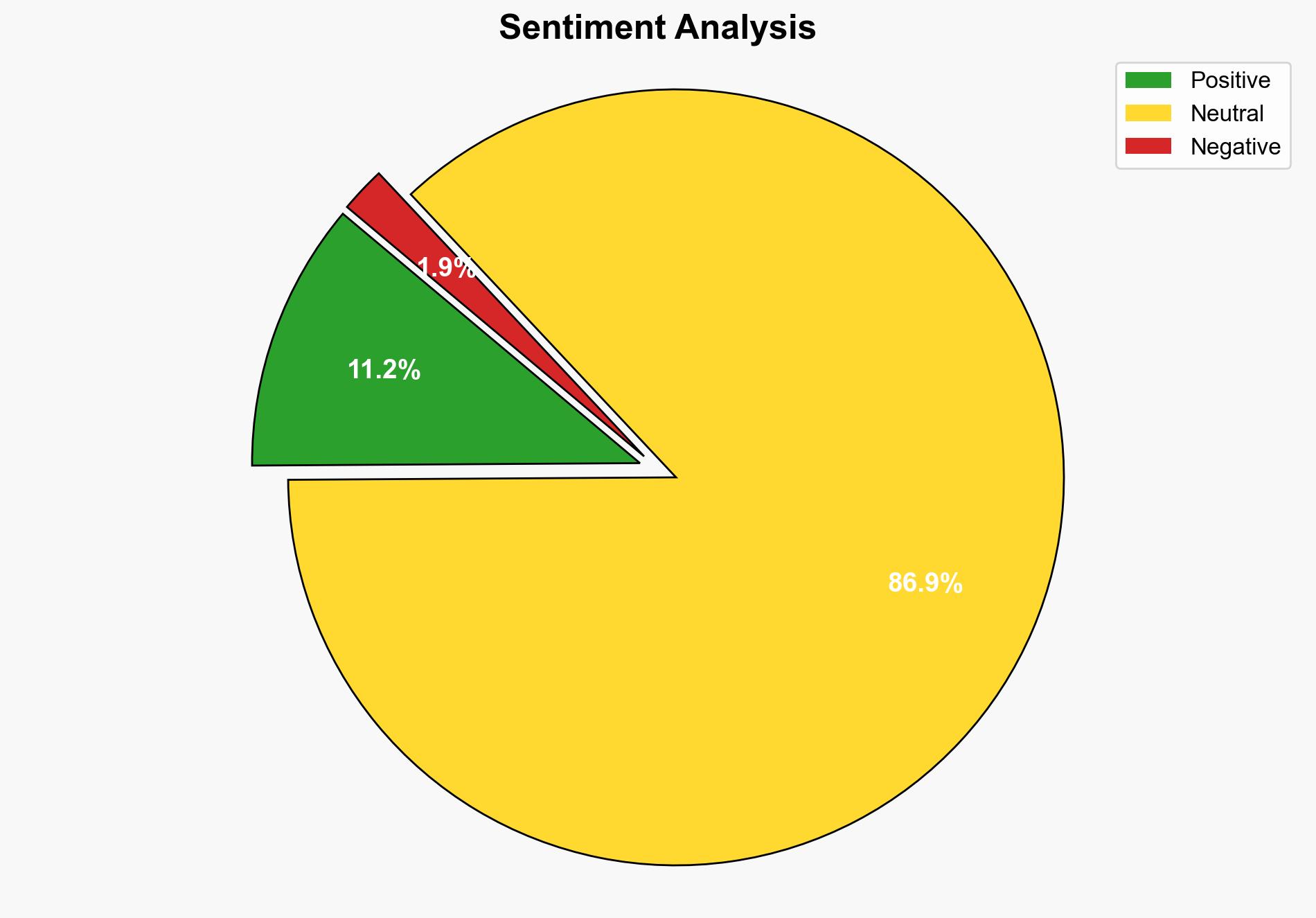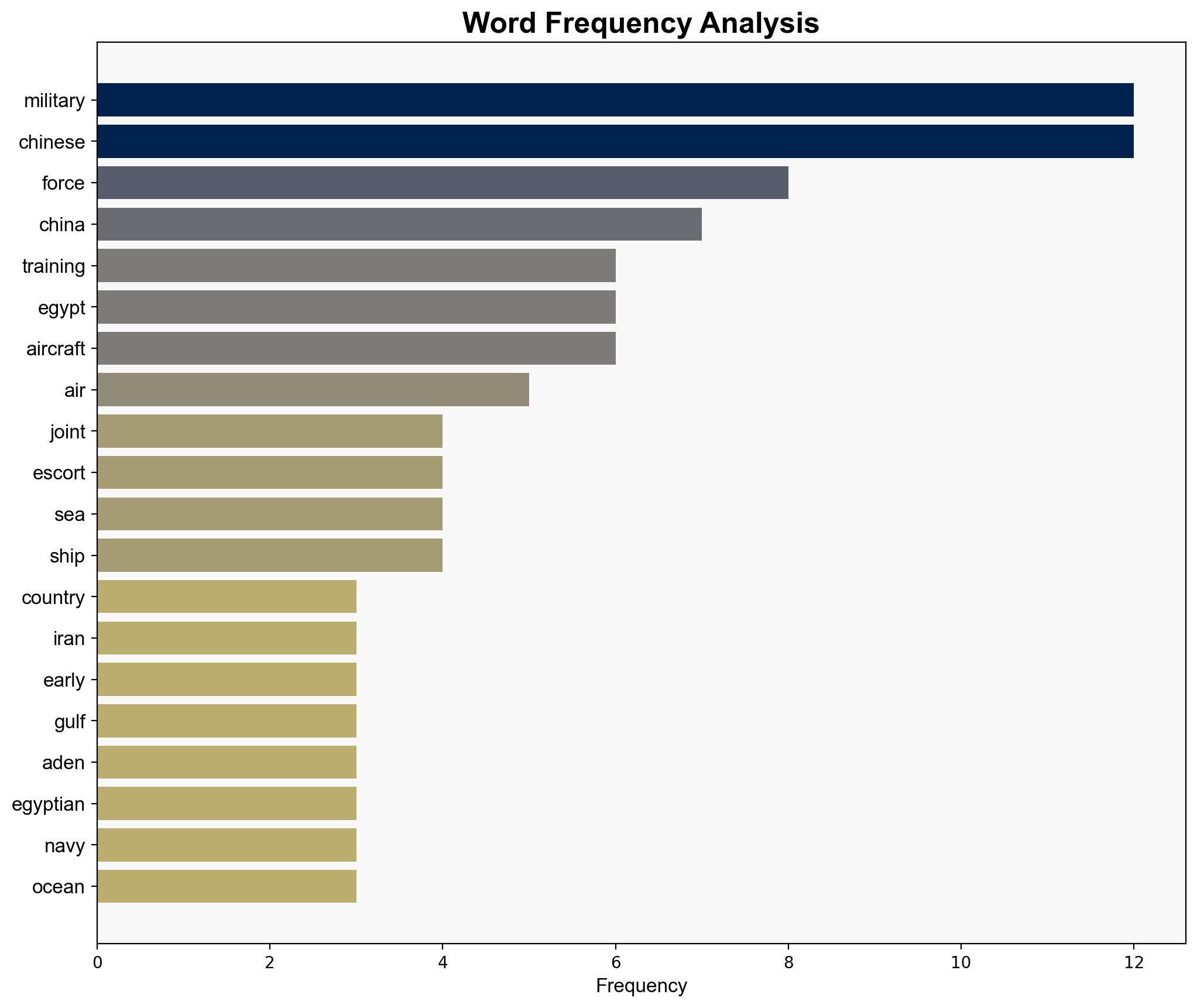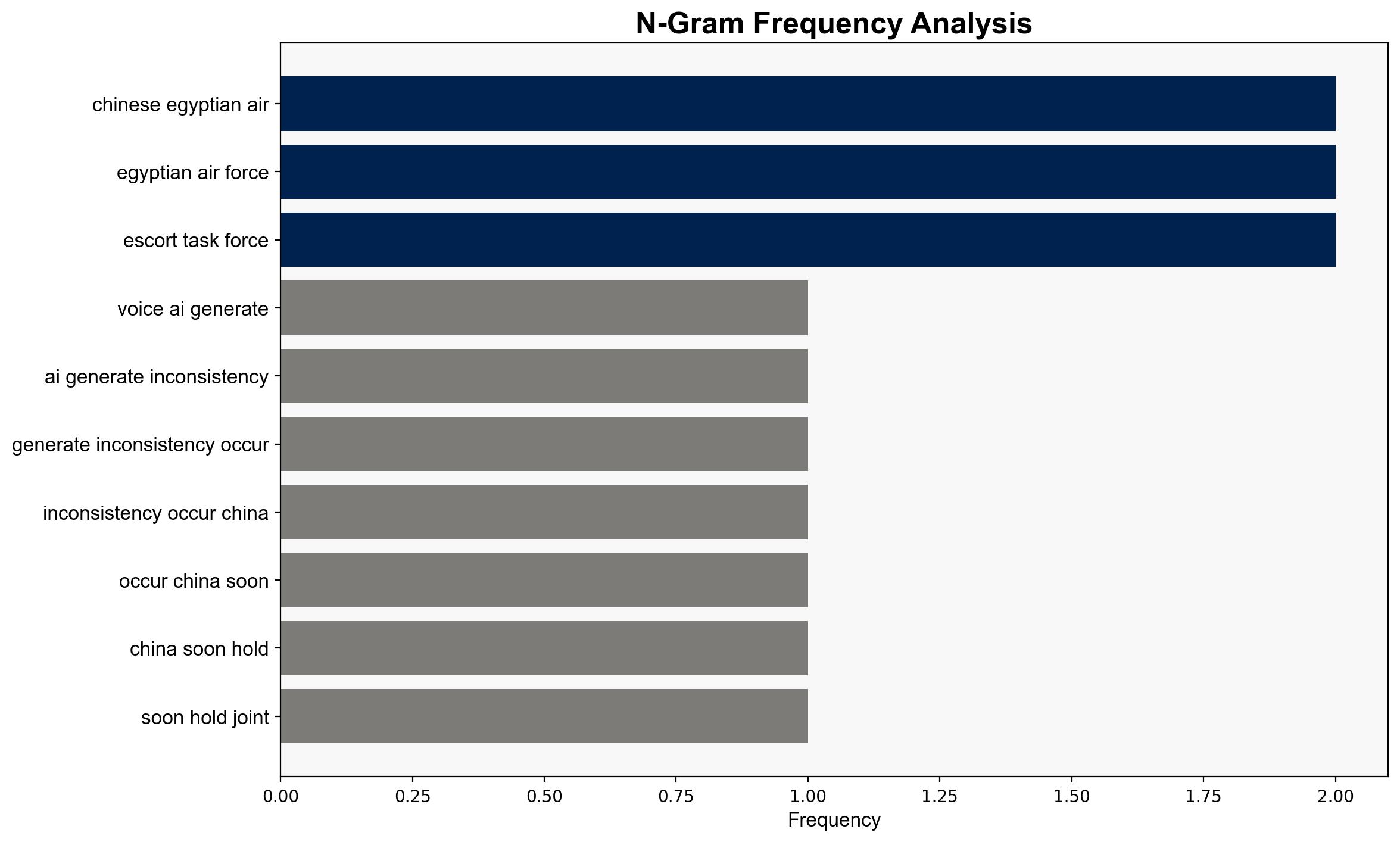China’s Military Flexes Muscles in Middle East Amid US Airstrikes – Newsweek
Published on: 2025-04-17
Intelligence Report: China’s Military Flexes Muscles in Middle East Amid US Airstrikes – Newsweek
1. BLUF (Bottom Line Up Front)
China’s increasing military presence in the Middle East, exemplified by joint exercises with Egypt and naval operations in the Gulf of Aden, signifies a strategic expansion of influence in a region traditionally dominated by the United States. This development could alter regional power dynamics, necessitating a reassessment of U.S. military and diplomatic strategies in the area.
2. Detailed Analysis
The following structured analytic techniques have been applied:
SWOT Analysis
Strengths: China’s financial investments and military collaborations enhance its influence in Africa and the Middle East, providing strategic footholds.
Weaknesses: Limited historical military alliances in the region may hinder immediate operational effectiveness.
Opportunities: Strengthening ties with Egypt and other regional players can facilitate China’s Belt and Road Initiative and secure energy routes.
Threats: Increased U.S. military presence and potential conflicts with Iran could escalate tensions, impacting China’s regional strategies.
Cross-Impact Matrix
China’s military activities in Egypt and the Gulf of Aden could influence U.S. operations against Iran-backed forces in Yemen, potentially complicating U.S. naval and air operations. Additionally, China’s presence may encourage other regional powers to reassess their alliances and military strategies.
Scenario Generation
Scenario 1: Continued Chinese military collaboration with Egypt leads to a stronger regional alliance, challenging U.S. influence.
Scenario 2: Escalation of U.S.-Iran tensions results in increased military activities, with China playing a mediating role to protect its interests.
Scenario 3: Regional instability prompts a multinational effort to stabilize the area, with China and the U.S. potentially collaborating on security initiatives.
3. Implications and Strategic Risks
The growing Chinese military presence poses strategic risks to U.S. influence and operations in the Middle East. This shift could lead to increased competition for regional partnerships and resources. Additionally, China’s actions may embolden other nations to pursue independent military strategies, potentially destabilizing existing alliances.
4. Recommendations and Outlook
- Enhance diplomatic engagement with Egypt and other regional partners to counterbalance China’s influence.
- Increase intelligence-sharing and joint military exercises with allies to maintain strategic advantages.
- Develop contingency plans for potential escalations involving Iran, ensuring readiness for rapid response.
- Monitor China’s military activities and adjust U.S. force deployments to safeguard interests in the region.
5. Key Individuals and Entities
Xi Jinping, Wang Yunfei




